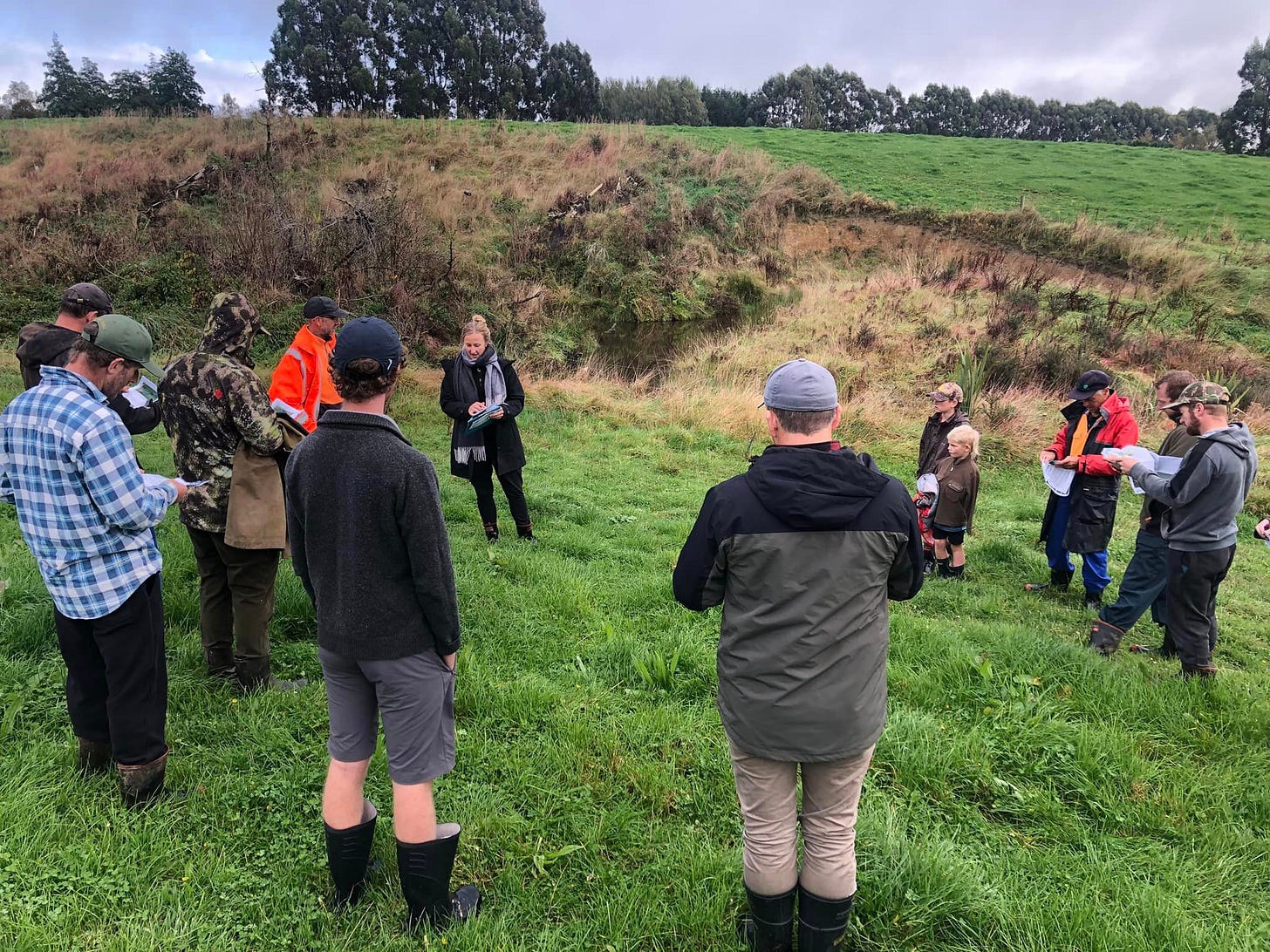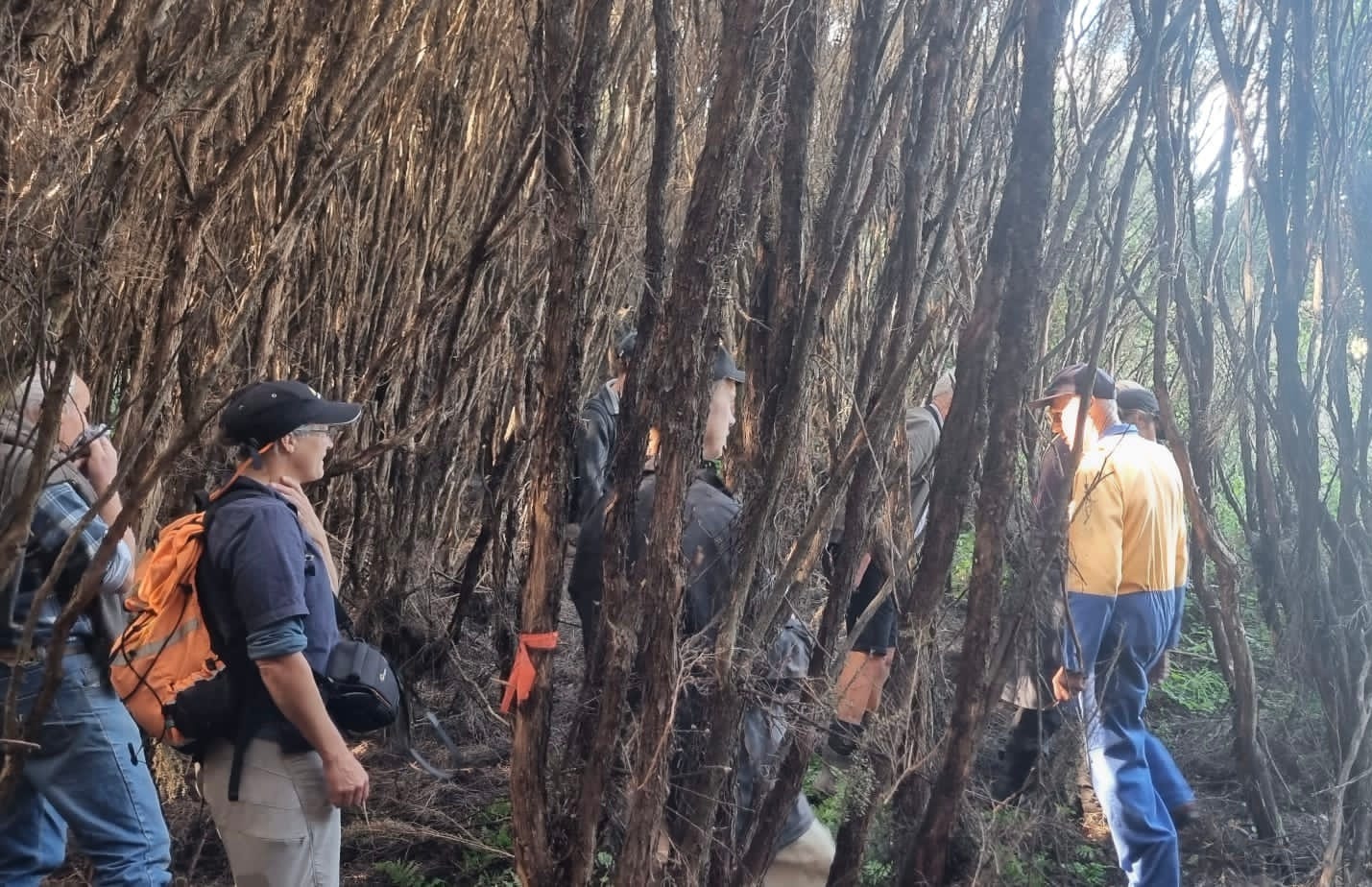Farmer-led catchment groups unite to 'build our future together'
“For me the sediment traps are an asset. I see them as being able to minimise what’s going down to the Waimatuku Stream."

Sediment trap site visits, presentations on Kana Kana (Lamprey) research and a glimpse of a southern coastal gem were among the many attractions of a series of events hosted by Aparima catchment groups during April.
More than 100 people attended Aparima Community Environment (ACE) stream walks and field days to showcase some of the amazing on-farm initiatives being tackled by farmers and catchment groups. The six farmer-led catchment groups of the Aparima river catchment have come together to develop and implement the “building our future together with our community project” over a three-year period.
Those attending a ‘Trap the Cr*p’ field day near Drummond learned that wetlands and sediment traps on farms did not need to be big to be really effective.
Dirk Dietche talked about the sediment traps they have built on their farm.
“For me the sediment traps are an asset. I see them as being able to minimise what’s going down to the Waimatuku Stream,” he said.

ACE is creating a network of sediment traps and documenting, recording and analysing all aspects.
Wetland expert Craig Simpson was on hand to talk about the amazing work the Pomahaka Water Care Group was doing, their findings and results.
His top tips were having a clear idea of what you wanted to achieve, thinking about water quality and biodiversity, working with existing topography like swales and gullies, and talking to other landowners for advice.
“We’re trying to work back in with nature. Wetlands and sediment traps don’t need to be big to be really effective,” he said.
At the Pourakino event, presentations on Kana Kana (Lamprey) research, habitat restoration, eDNA and an electric fishing demonstration made for an action-packed afternoon.
Dr Jane Kitson shared her latest research and findings on Kana Kana around New Zealand.
Kana Kana were incredible “living fossils” and their risk status was comparable to that of the Takahē, but as they were secretive water-dwelling creatures their profile was nowhere near as high, she said.
The baseline population was not known, but from observations numbers had declined, she said.
“We need to promote them as really special, and a taonga.”
A group of about 30 people got a first-hand look at ecological restoration work happening near Big Lagoon at Waimatuku earlier in April.

The lagoon was historically the second largest freshwater lagoon on the Southern Coastal Plain. After years of development where parts of the lagoon were drained, extensive restoration work has occurred during the past 20 years.
Thriving Southland senior catchment co-ordinator Rachael Halder said it was a fantastic afternoon learning about the great work being done around the lagoon by the Hodsell family and others — and sharing one of the fantastic natural areas in Southland’s backyard.



